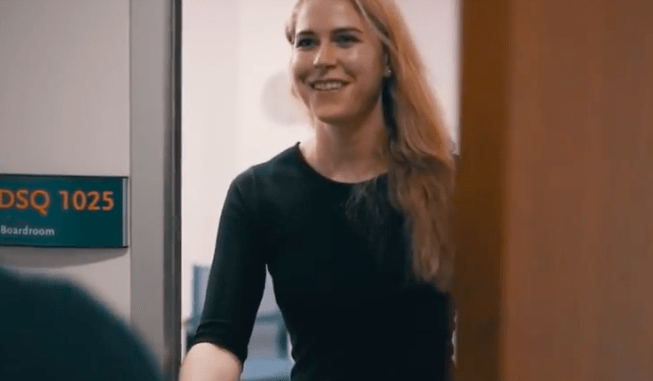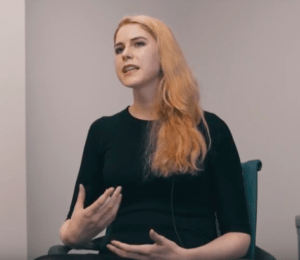
Canadian legal AI company, Diligen, is sponsoring the country’s first conference for LGBTQA+ inclusion in tech and entrepreneurship, Venture Out, which will be held March 27, in the MaRS Discovery District.
Artificial Lawyer spoke to Laura van Wyngaarden, COO of Diligen, about her passion for inclusion in tech and legal tech.

First, it’s great to see legal AI companies supporting inclusion. But, may I ask, why is Diligen supporting this event? And how does this kind of event further inclusion in tech?
We wanted to be part of the great work that Venture Out is doing in making the tech industry a more welcoming place for all people.
If we, as tech companies, are going to build world-changing products we need the very best and brightest people to work with us. That means drawing from a diverse talent pool and hiring people who aren’t necessarily like us. Diverse perspectives and talent sets make for more robust, resilient, flexible and creative companies. I know that in building our company and our contract analysis software, having a very diverse team of brilliant people has been a real strength for us.
On a more pragmatic level, it’s clearly important for all businesses to be inclusive, but do tech companies have a particular challenge here, compared to law firms, for example?
Tech companies do particularly poorly on diversity, especially when it comes to leadership and technical roles. But the good news is there is much more awareness now than there was even a few years ago that we need to do better. And that’s a powerful first step in the right direction.
In the introductory video for the event one of the speakers said that companies talking about ‘culture fit’ when it came to hiring people was not helpful. Could you explain a little more about this.
Consistently hiring people that are very similar to the people you already have at the company causes a narrowing in the kind of thinking you do as a team. On the flip side, there is unique kind of genius that emerges when a team of people with really diverse perspectives are committed to solving a difficult problem together.
To draw an analogy from machine learning, if you train a model on a narrow set of data that doesn’t represent the real world (i.e. isn’t sufficiently diverse) you get a model that performs poorly on real world data because it has only been trained to recognize a narrow band of examples. Likewise if, say, 50% of your company’s customer base are female, but very few of your team members are, you’re possibly missing out on some key insights into the people you’re supposed to be serving.
Also in the video (see link) you mention that the problem with interviewing for tech jobs is that candidates assume there is a stereotype you are looking for. They then don’t really show their true personality and that clearly makes it harder to know who to hire. How do we overcome such barriers? And what is your advice to someone looking for a job in tech/legal tech?
Hone your skills and be able to clearly articulate the value you bring to the company. Then take the risk of being real, the right company will love you for it.
And finally, and also to bring this back to the subject of AI, do you think that job interviews would be less biased if they could be conducted by an AI interviewer? Is that perhaps the answer to overcoming bias?
Well, that’s interesting. I could see AI playing a role in the hiring process in the future. We’d have to be careful when training the AI not to pass on our own biases.
Video by Venture Out – Hiring for Diversity.